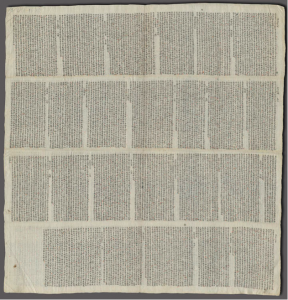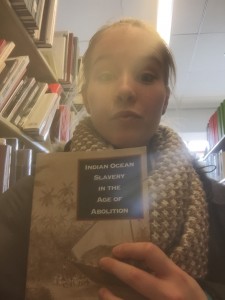Fabric Cheat Sheet from the 19th century Qing Dynasty that displays calligraphy a candidate would have been required to know for a civil service exam. It can currently be found in the C.V. Starr East Asian Library at Columbia University in New York, New York.
Bibliography
Burbank, Jane, and Frederick Cooper. Empires in World History. Princeton UP, 2010. Print.
“Jewels In Her Crown: Treasures of Columbia University Libraries Special Collections.” East Asian Collections. Columbia University Libraries,2004. Web. http://www.columbia.edu/cu/lweb/eresources/exhibitions/treasures/html/long_topic2.html
“Section 2. Cranes and Peacocks: Rank Badges for Civil Officials.” Ran and Style: Power Dressing in Imperial China. The Pacific Asia Museum, Pasadena, CA, 2008. Web. http://www.pacificasiamuseum.org/rankandstyle/html/pdf/RankandStyle_Section_2.pdf
“The Chinese Imperial Examination System.” Confucianism and the Chinese Scholastic System. Web. <https://www.cpp.edu/~plin/ls201/confucian3.html>.
Vongsathorn, Kathleen. History of the Modern World. Lafayette College. Pennsylvania. 02 March 2015. Lecture.
Young, Chris. Lonely Eyes. 2014. MP3


